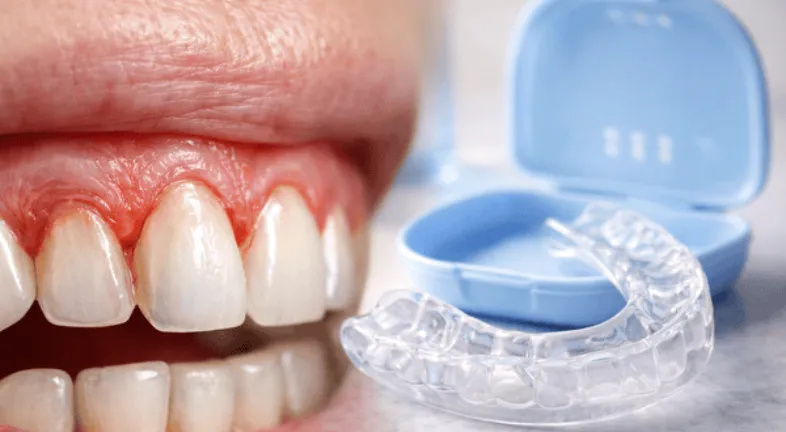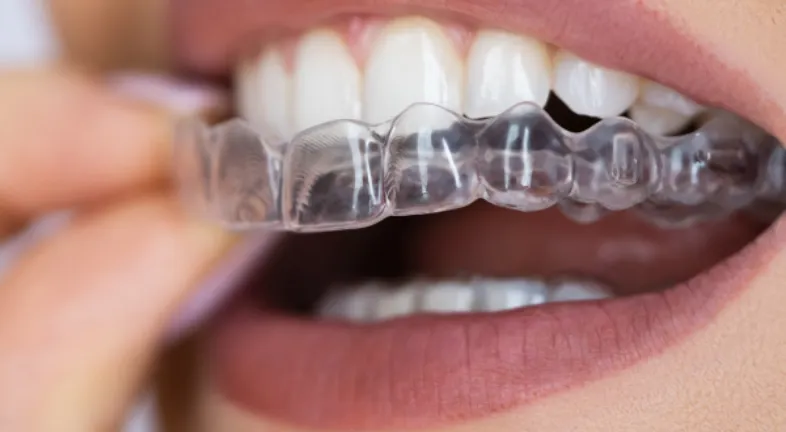
Table of Content
Your mouth isn’t just for eating and talking. It can give you clues about your overall health. From gum disease to bad breath, the state of your mouth can say a lot about what’s happening in the rest of your body. Let's dive into how your oral health is connected to your general well-being and how to spot potential health issues through changes in your mouth.

Your mouth is a window to your body’s overall health. Many health problems can manifest symptoms in your mouth. For instance, gum disease isn’t just a dental issue—it can affect your entire body. Inflammation from gum disease can spread, increasing your risk of heart disease, diabetes, and respiratory issues. Maintaining good oral hygiene is essential not only for a healthy smile but also for a healthy body.
1. Heart Disease: The inflammation from gum disease can contribute to heart problems. Bacteria from your gums can enter your bloodstream, leading to the formation of arterial plaques. These plaques can cause heart attacks and strokes.
2. Diabetes: If you have diabetes, you’re more likely to develop gum disease. High blood sugar levels can make infections more likely. Conversely, gum disease can make it harder to control your blood sugar levels, creating a vicious cycle.
3. Respiratory Problems: Bacteria from your mouth can be inhaled into your lungs, causing infections like pneumonia, especially in people with compromised immune systems or the elderly.
Taking care of your mouth can significantly impact your overall health. Here are some easy steps to maintain good oral hygiene:
Saliva plays a crucial role in maintaining your oral health. It helps neutralize acids produced by bacteria in your mouth, washes away food particles, and aids in digestion. Here’s why saliva is so important:
1. Neutralizing Acids: Saliva helps keep the pH balance in your mouth, preventing tooth decay and gum disease. When you eat, bacteria in your mouth produce acids that can erode your tooth enamel. Saliva neutralizes these acids, protecting your teeth from decay.
2. Washing Away Food: Saliva removes food particles and debris, reducing the risk of cavities and gum infections. It also helps prevent the build-up of plaque, a sticky film of bacteria that can lead to tooth decay and gum disease.
3. Aiding Digestion: Saliva contains enzymes that begin the digestion process in your mouth. These enzymes break down starches into simpler sugars, making it easier for your body to digest food. Additionally, saliva helps form food into a bolus, a small, manageable ball that makes swallowing easier and more efficient.
4. Protecting Tissues: Saliva coats and protects the tissues inside your mouth. It contains proteins and minerals that help repair the soft tissues and enamel on your teeth. This protective barrier helps prevent infection and keeps your mouth healthy.
If you experience dry mouth, it can lead to problems like bad breath, tooth decay, and gum disease. Dry mouth, or xerostomia, can result from medications, certain medical conditions, or radiation therapy for cancer. Staying hydrated, chewing sugar-free gum, and using saliva substitutes can help stimulate saliva production and maintain oral health.

Bad breath is more than just an embarrassment; it can also indicate underlying health problems. Let’s explore the causes and implications of halitosis:
1. Oral Causes:
2. Systemic Causes:
Addressing bad breath typically starts with improving oral hygiene practices. However, if the problem persists, it might be wise to visit a healthcare provider to rule out other health conditions.
Tooth decay is a prevalent issue that can have more significant health implications than just cavities. Here’s how tooth decay can affect your overall health:
1. Diet and Oral Health:
2. Impact on Nutrition:
3. Connection to Chronic Diseases:

Gum disease, or periodontal disease, is a significant oral health problem with wide-reaching effects on overall health. Here’s a closer look at the impact of gum disease:
Paying attention to changes in your gums and tongue can give you important clues about your health. Here’s what to look for:
Swollen or Bleeding Gums: If your gums are red, swollen, or bleed when you brush or floss, it could be a sign of gum disease. This might also be an indicator of other health issues like diabetes. Healthy gums should be firm and pink.
Receding Gums: If your gums are pulling away from your teeth, it can make your teeth look longer and expose the roots, leading to sensitivity and increased risk of cavities. This can happen from brushing too hard, gum disease, or hormonal changes.
White-Coated Tongue: A white coating on your tongue can mean poor oral hygiene, dehydration, or even oral thrush, which is a fungal infection. Keeping your tongue clean by brushing it or using a tongue scraper can help.
Red or Inflamed Tongue: If your tongue is red and inflamed, it might be due to a lack of certain vitamins, like B12 or iron, or an allergic reaction. Eating a balanced diet can help keep your tongue healthy.
If you notice any of these changes, it’s a good idea to check with your dentist or doctor to make sure everything is okay.
Understanding the connections between oral health and overall health highlights the importance of maintaining good oral hygiene. Issues like bad breath, tooth decay, and gum disease can all be indicators of broader health problems. By taking care of your mouth, you’re also taking care of your body. Regular dental visits, proper brushing and flossing, a balanced diet, and avoiding tobacco are all crucial steps in ensuring both your oral and general well-being. If you notice any changes in your oral health, don’t hesitate to seek professional advice. Your mouth can be a window to your overall health, providing early warnings about potential health issues.




Curated the best for your knowledge
.webp) Cavities: Why Cleaning Your Essix Retainer Is Important
Cavities: Why Cleaning Your Essix Retainer Is ImportantCavities do not usually start with pain; they begin quietly. A thin film of plaque forms, bacteria settle in, and before you realize it, enamel has started to weaken. The risk of cavities often increases when you wear oral appliances like Essix retainers. However, the retainer itself is not the issue; improper maintenance and neglecting cleaning are the main culprits. If you have invested in orthodontic treatment, whether traditional braces or clear aligners, your retainer is what protects that investment. But an unclean one just makes matters worse. So, let’s walk through this guide to understand why cleaning your Essix retainer is important.
Read More Can Mouthguards Cause Gum Recession
Can Mouthguards Cause Gum RecessionMouthguards are usually seen as the “good guys” of dental care. They protect teeth from grinding, cushion heavy bites, and help prevent long-term damage. So when someone notices sore or receding gums while wearing one, confusion sets in fast. Can mouthguards cause gum recession, or is something else going on? The honest answer isn’t a simple yes or no. Gum recession almost never has one single cause. It’s usually the result of pressure, inflammation, habits, and time all working together. Mouthguards can sometimes contribute to irritation, but in many cases, they’re actually helping prevent worse damage. Understanding the difference matters more than blaming the device.
Read More How to Clean Essix Retainers
How to Clean Essix RetainersIf you wear Essix retainers, commonly known as clear retainers, you already know they are both amazing and annoying. Essix retainers are nearly invisible, lightweight, and comfortable. At the same time, they stain easily, hold onto odors, and can appear questionable if not properly cared for. Cleaning Essix retainers sounds simple. Rinse, brush, done. But if you’ve ever pulled yours out of its case and wondered why it smells off or looks slightly yellow, you already know there’s more to it. In this blog, we will guide you through how to clean Essix retainers properly, what to avoid, how often to clean them, and why they change color over time.
Read MoreQuick Links

Heading